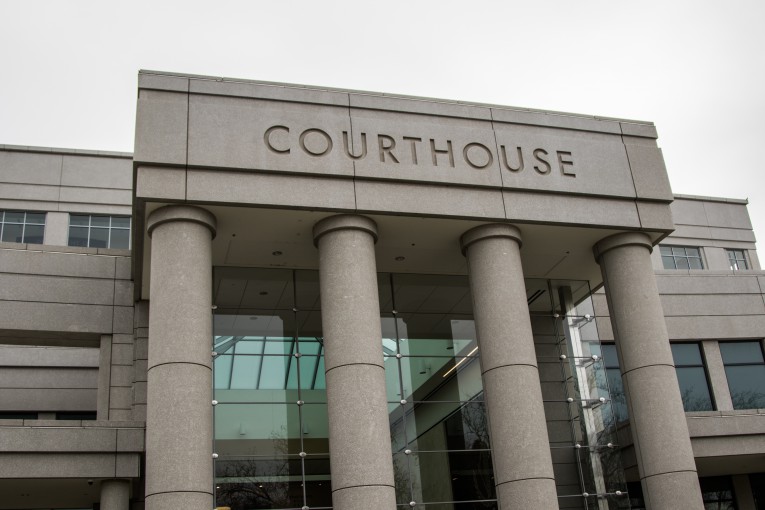
 By Kendra Hall
By Kendra Hall
This morning, in department 8 of the Yolo county Superior Court Ashley Bargenquast, Attorney for the Defendant Mr. Cody Grimes, argued that the charges against her client should be dismissed because key evidence was improperly handled by police and third parties. Ms. Bargenquast pointed out that the partial destruction of this important evidence equates to a denial of the due process which all defendants are entitled to under the law.
In 2016 Mr. Grimes was allegedly found in possession of a “large number” of marijuana plants as well as five Pit-Bull terriers. He was charged with possession of marijuana for illegal sale. About a month later dog fighting and child endangerment charges were also added to the list.
Deputy District Attorney Mr. Kyle Hasapes argued that discolorations on the animal’s coats were indicative of scaring. In addition to this, he argued that several books on Pitbulls, a veterinary syringe, and other items recovered during the search of the defendant’s home provided compelling evidence of the defendant’s likely involvement in dog fighting. This, he argued was further supported by a 1998 charge against the defendant that included a video of Mr. Grimes allegedly engaging in dog fighting.
Considering the evidence found at the defendant’s home and his prior conviction, the dogs were removed and placed in the care of a local Pitbull rescue named “BadRap.” The marijuana plants were  also confiscated.
also confiscated.
However, after the animals and the marijuana plants were seized problems soon began; ultimately compelling the defense to make a robust argument for dismissal today.
According to Ms. Bargenquast, she encountered difficulty in obtaining access to both the plants and the animals. It seems from her statements that law enforcement, as well as other parties, may have been deliberately uncooperative. She told the Court that one police Sargent refused to provide her with any information as to the whereabouts of the animals or even a case number, inferring that she, being an attorney, “should be able to figure it out.” Prior to the any opportunity for the defense to conduct an independent investigation of this evidence, all the plants and two of the dogs were destroyed. The remaining three dogs were re-homed.
Ms. Bargenquast asserted that this destruction of critical evidence prevents the defense from an independent inquiry into the precise number of plants removed from the defendant’s home, as well as the nature of the alleged scarring on the dog’s coats. Without knowledge of the precise number of plants removed from the home, the intent to distribute is neither easily refuted or confirmed. Furthermore, without access to the dogs, the charges of dog fighting are entirely circumstantial. Subsequently the lack of access to this critical evidence forces the defense to simply accept the prosecution’s evidence at face value. This is problematic and as she stated allows the prosecution to “cherry pick” facts which the defense is then left potentially unable to refute.
The child endangerment charge is chiefly based on the exposure of a child to these allegedly dangerous animals. Therefore, the temperament of the dogs is obviously a key element in determining the validity of this charge. With two dogs now euthanized it is impossible for the defense no not only examine their physical state but also obtain an independent assessment of their temperament. Although three of the dogs are still potentially accessible, the fact that they have been re-homed brings into question the prosecution’s argument that these animals represent a credibly violent threat to any persons.
After arguments from both attorneys were heard, the Judge, Hon. David W. Reed denied the Defense’s motions to dismiss the case based on the destruction and mishandling of this evidence. Judge Reed stated that although the dogs were not handled in a manner consistent with evidence in a criminal case, the defense did not prove this oversight could be attributed to any actions or efforts to suppress evidence by the prosecution. He stated that a picture of the marijuana plants could sufficiently provide insight as to how many were confiscated and the remaining three dogs could potentially be made accessible for a future inquiry on the part the defense.
The case will therefore proceed to trial. It currently scheduled to begin in February.
